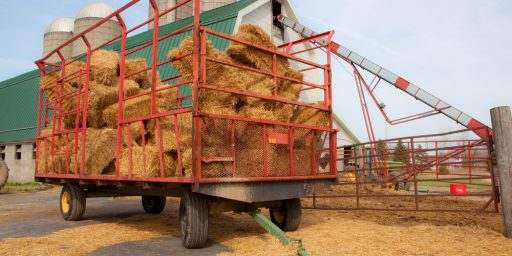Organic Coffee in Danger?
Salon‘s Samuel Fromartz reports that a new USDA ruling that requires that all products carrying the “organic” label must be government inspected and certified, even those grown on Third World small farms.
Until now, however, there has been a special provision for “grower groups” that made certification practical for farmer cooperatives in the Third World, whose memberships can reach into the thousands. Because of the immense logistical demands of inspecting every farm in a large co-op, a compromise was reached: An organic inspector would randomly visit only a portion of the group’s farms each year, usually 20 percent. The grower groups would then self-police the remainder through a manager who made sure they followed the rules. The following year, an inspector would return and visit another 20 percent of the farms. After five years, all farms would be inspected.
But in the ruling made public this month, the National Organic Program overturned that system, saying every farm in a grower group must now be visited and inspected annually — as has been the practice in the United States — rather than only a percentage.
The flaws in such a system are obvious. Four years out of five, a small farm would be able to “cheat” and use pesticides, chemical fertilizers, and other methods non-organic farmers use in order to increase their yield. On the other hand, according to Fromartz at least, there have been very few recorded incidents of this.
This all begs the question: Do we really need the U.S. government to inspect every little farm on the planet in order to ensure that yuppies aren’t getting paying slightly more for “organic” coffee that is in fact produced using “non-organic” practices?
via Memeorandum






I would think the inspectors are testing the soil as well as the plants.
This raises interesting questions about scope of government. To the extent that there is a market value for ‘organic’, it would seem that a private enterprise organization to certify and mark as organic would be reasonable.
Why is the government involved? USDA meat certification is directly related to health (and doesn’t have 100% inspection). Organic is tangentially related to health and requires 100% inspection. Something seems out of kilter here.
The last non-organic farmer i saw was a tractor!
but inorganic coffee sounds strange indeed!